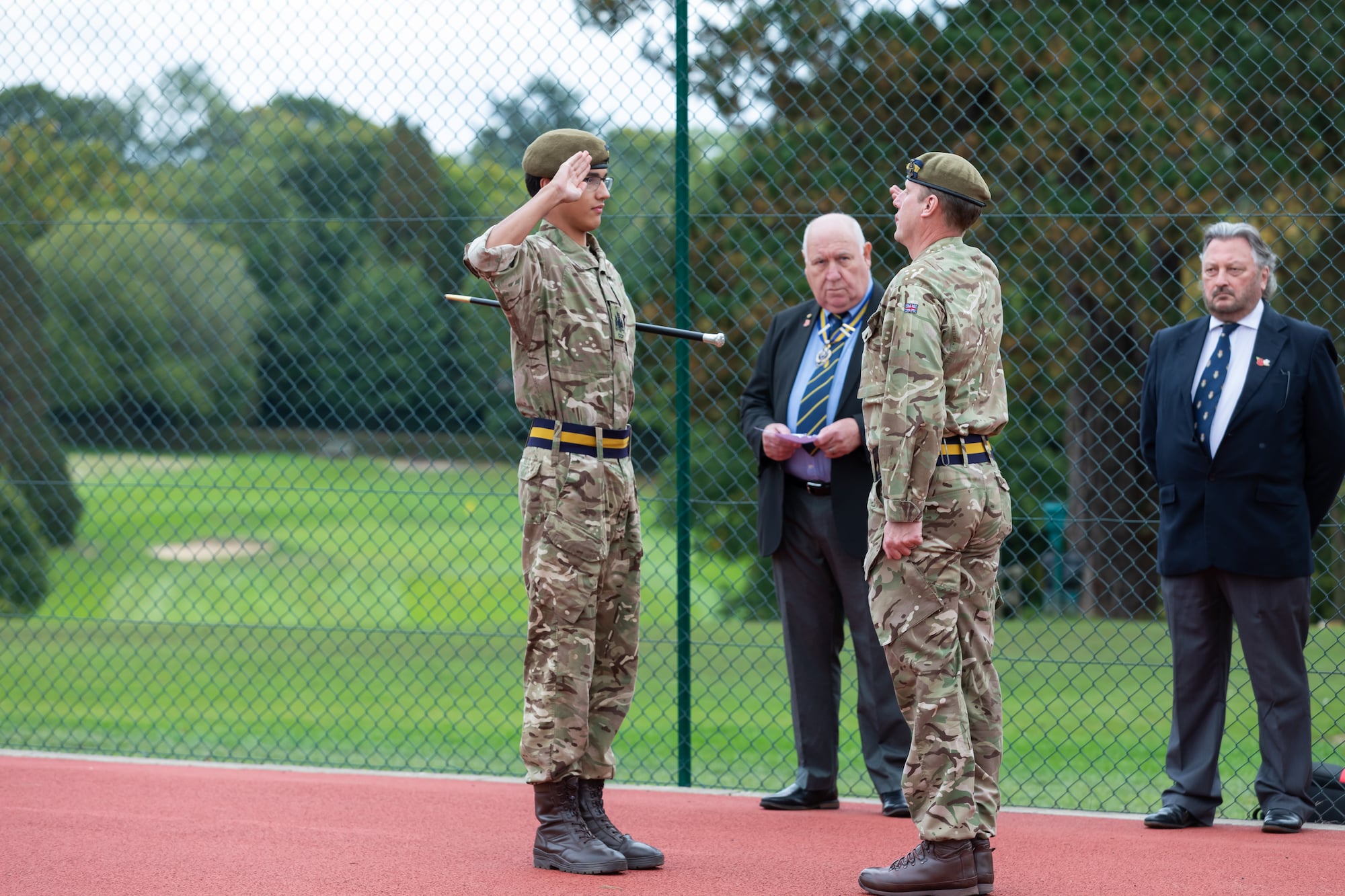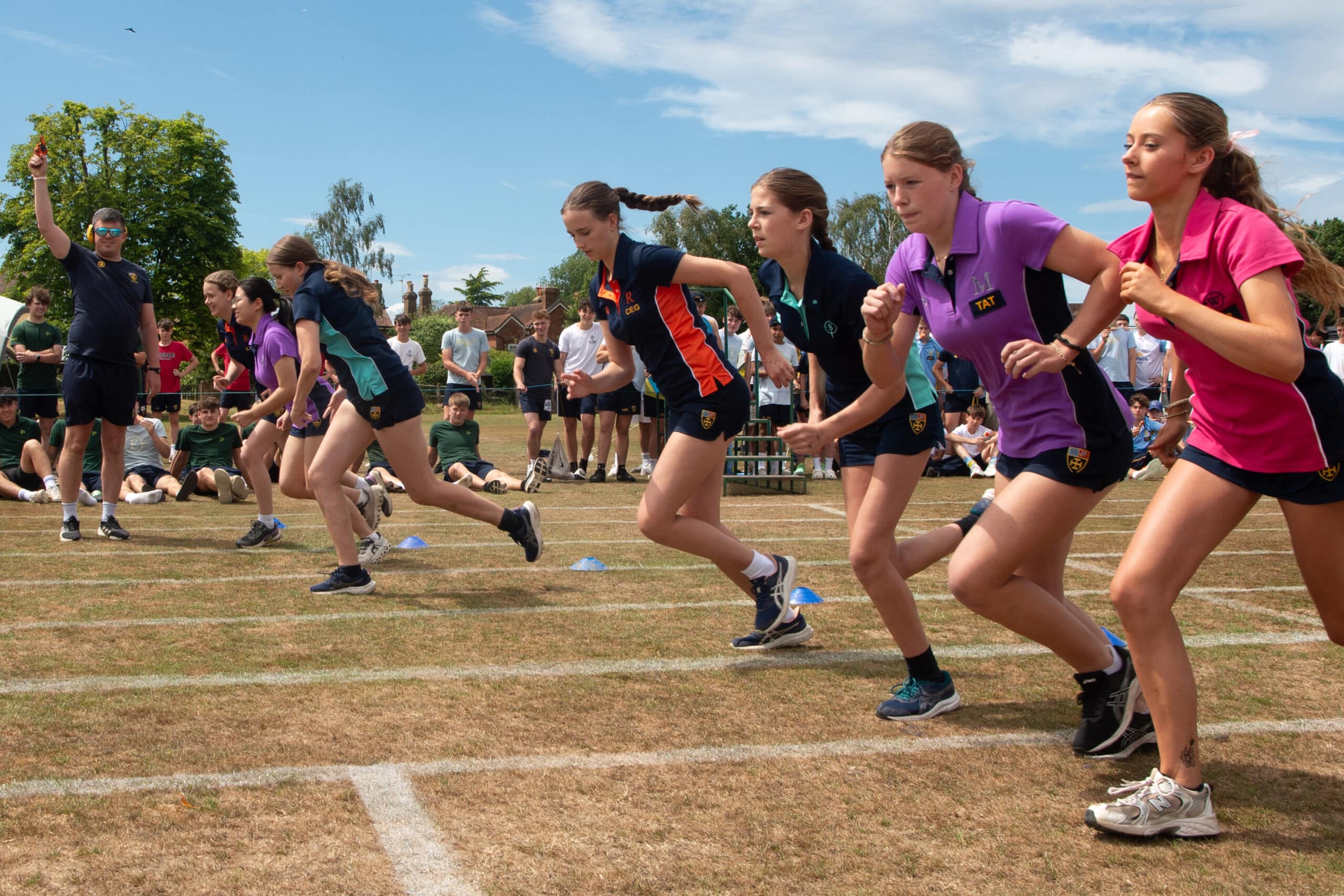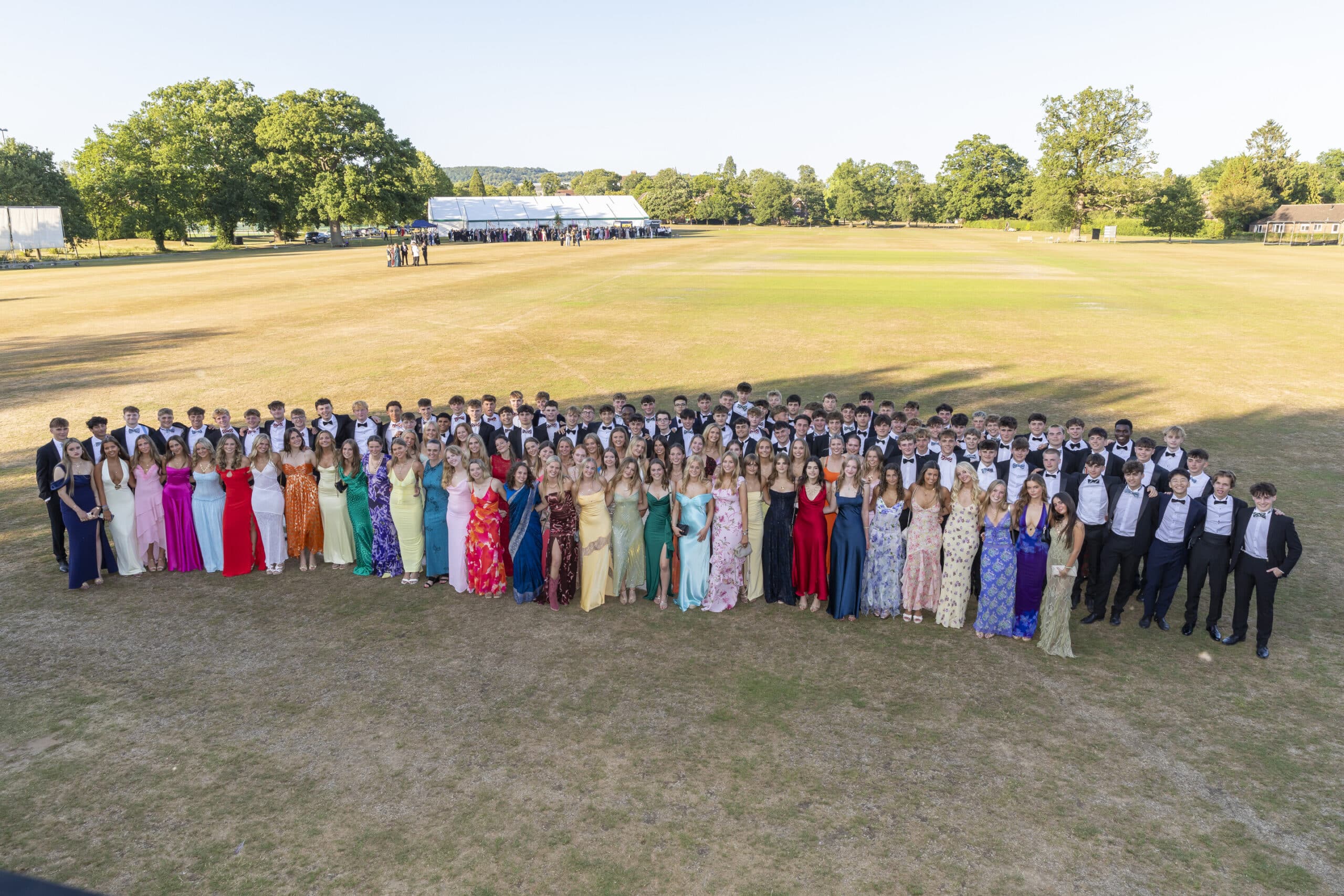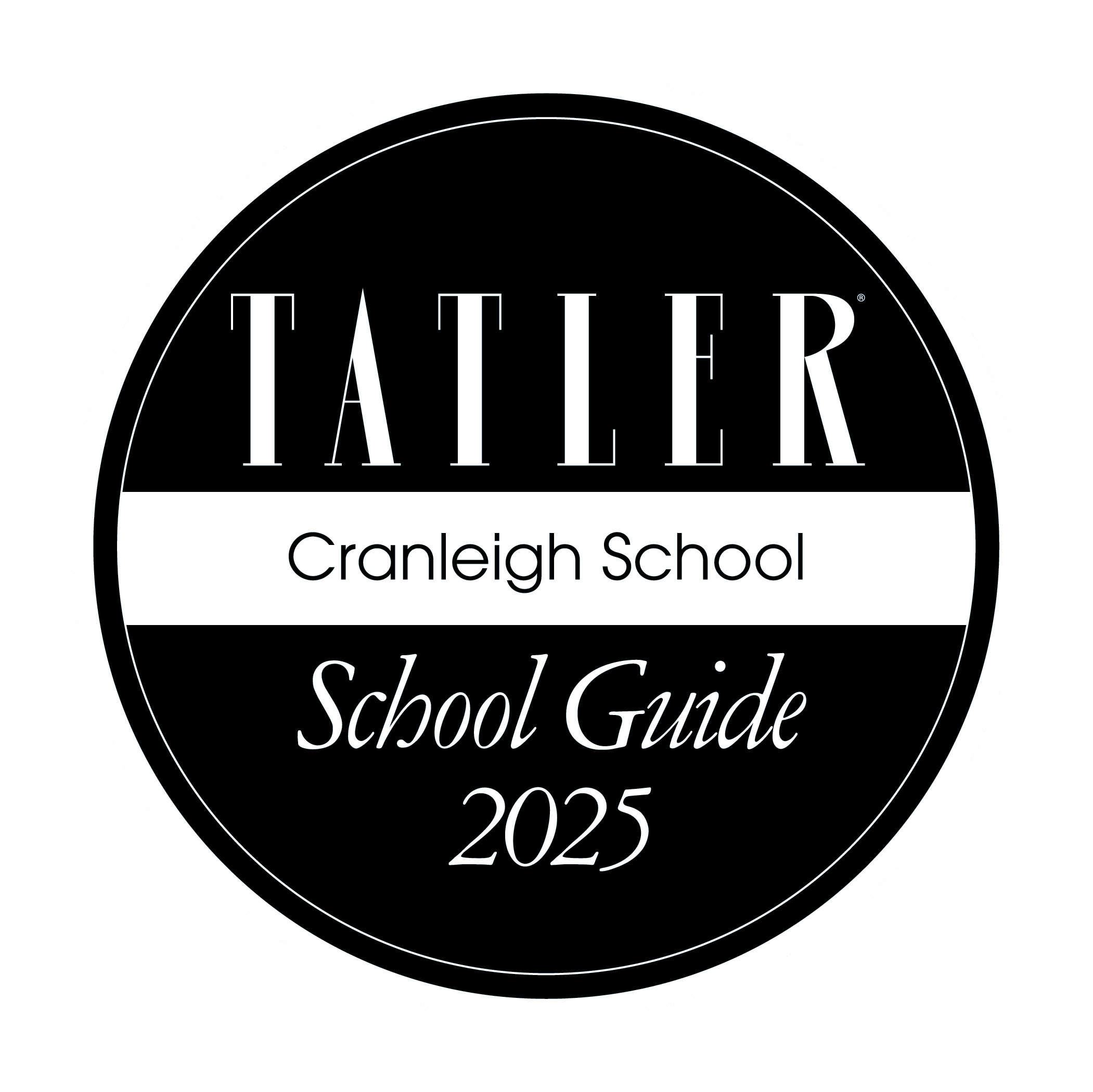Jeeves and Wooster stand alone in the pantheon of England’s comic literary heroes. For generations of Wodehouse aficionados the amiable, long-suffering Bertie and his apparently respectful yet surreptitiously anarchic valet, Jeeves, have provided unadulterated delight, occupying, as Evelyn Waugh put it, an idyllic world which can never stale. James Copp and Nikki’s Lockwood’s inspired produ ction clearly paid homage to the spirit of Wodehouse’s creations – this was an evening of unmitigated joy which married the effortless genius of Wodehouse’s prose with some genuine Hollywood glamour and exuberance. I have seen a lot of plays at Cranleigh but seldom can I recall an audience guffawing with such utter delight.
ction clearly paid homage to the spirit of Wodehouse’s creations – this was an evening of unmitigated joy which married the effortless genius of Wodehouse’s prose with some genuine Hollywood glamour and exuberance. I have seen a lot of plays at Cranleigh but seldom can I recall an audience guffawing with such utter delight.
Jeeves and Wooster’s literary antecedents are to be found in the plays of Terence and Plautus, yet the start of “By Jeeves” brought to mind the Jacobean comedy of Francis Beaumont in the cheerfully unapologetic use of a framing device to launch us in to the comic action. Ostensibly, Bertie should be playing the banjo, in order to raise funds for the Little Wittam Church Steeple. His banjo, however, has not yet arrived, so, after strumming futilely on a frying pan, he is forced to try to fill the time by recounting his adventures at Totleigh Towers. A wonderful array of desperately unsuitable props is provided to add drama to the narrative and we are plunged into a quintessentially Wodehousian adventure, involving multiple mistaken identities, doomed pseudo-burglaries, threats of violence and wholly unsuitable couplings before Jeeves eventually arrives with Bertie’s banjo – all of which is played out to an uplifting score, due to the splendid accompaniment of a five piece band, comprising Marcus Pashley, Ed Clarke, Ruth Miller, Harrison White and Phil Lockhart.
a frying pan, he is forced to try to fill the time by recounting his adventures at Totleigh Towers. A wonderful array of desperately unsuitable props is provided to add drama to the narrative and we are plunged into a quintessentially Wodehousian adventure, involving multiple mistaken identities, doomed pseudo-burglaries, threats of violence and wholly unsuitable couplings before Jeeves eventually arrives with Bertie’s banjo – all of which is played out to an uplifting score, due to the splendid accompaniment of a five piece band, comprising Marcus Pashley, Ed Clarke, Ruth Miller, Harrison White and Phil Lockhart.
From the outset, Seb Leman, as Wooster, demonstrated rare comic timing and touch. It’s all too easy to play Wooster as a bumbling toff, but Seb captured to perfection the exasperation of a young man whose desire for an easy life is constantly compromised by the inane stratagems of his lovestruck friends. His excellent voice carried many of the songs and it is clear that here is someone who will grace the Cranleigh stage for years to come. Henry de Villiers, as Gussie Fink-Nottle, seemed to ha ve been made for the part; he exuded the genuine haplessness of the newt fancier who finds himself in romantic entanglements for which he is ill-prepared. Ali Johnston, by contrast, completely reinvented the part of Bingo Little. In the Wodehouse books, Bingo is a hopeless romantic but also a keen sportsman, with a passion for golf and horse racing. Ali’s Bingo, however, was a far more memorable creation; wearing an umbrella for a hat, clad in an outrageous spotted shirt and shorts and impeded by a considerable lisp, this was a comic tour de force.
ve been made for the part; he exuded the genuine haplessness of the newt fancier who finds himself in romantic entanglements for which he is ill-prepared. Ali Johnston, by contrast, completely reinvented the part of Bingo Little. In the Wodehouse books, Bingo is a hopeless romantic but also a keen sportsman, with a passion for golf and horse racing. Ali’s Bingo, however, was a far more memorable creation; wearing an umbrella for a hat, clad in an outrageous spotted shirt and shorts and impeded by a considerable lisp, this was a comic tour de force.
Their love interests were equally memorable. Ella Batham-Read was perfectly cast as Honoria Glossop; clad in a tweed suit and brandishing a hockey stick, she was every inch the imperious blue-stocking of Bertie’s nightmares. She exuded real presence on stage and I was also enormously impressed with her voice, which was strong, resonant and compelling. Bee Hardcastle, captured the wide-eyed naivety of Madeline Bassett perfectly, without ever succumbing to the temptation of overdoing the silliness; here was someone who we believed could genuinely think that the stars were “God’s daisy chain” and this is really not easy to do. She won the heart, not only of Gussie Fink-Nottle, but also of the American jam magnate, Cyrus Budge. Freddy Austin, as Budge, brought to gether the virility and gullibility of so many of Wodehouse’s American alpha males with considerable flair and possessed a real physical presence on stage. Maddie Lock is such a demure and amiable girl that it was something of a shock to see her transformed into the formidable Stephanie Byng, the Veruca Salt of Wodehouse who refuses to take no for an answer. She played it beautifully however, particularly the scenes with her prospective fiancé, Harold Pinker, the accident prone curate, who was played with gusto and flair by Jamie Linford. They performed their romantic dance sequences with entirely straight faces and the results were all the more comic for that.
gether the virility and gullibility of so many of Wodehouse’s American alpha males with considerable flair and possessed a real physical presence on stage. Maddie Lock is such a demure and amiable girl that it was something of a shock to see her transformed into the formidable Stephanie Byng, the Veruca Salt of Wodehouse who refuses to take no for an answer. She played it beautifully however, particularly the scenes with her prospective fiancé, Harold Pinker, the accident prone curate, who was played with gusto and flair by Jamie Linford. They performed their romantic dance sequences with entirely straight faces and the results were all the more comic for that.
Harry Moore played Sir Watkyn Bassett, the embodiment of brooding, humourless, patriarchal authority, and yet, such was his infectious enjoyment at what he was doing, he made the old fellow seem almost likeable. Overseeing the whole thing was Cameron Scheijde’s Jeeves – maintaining an imperturbable countenance throughout, he played the part of the unobtrusive stage manager to perfectio n and his badinage with Seb’s Wooster was a delight to behold. It would also be remiss not to acknowledge at this point the really splendid efforts of the chorus. It’s fair to say that they had a great deal more to do than the conventional chorus line – aside from singing and dancing, they also played the parts of armchairs, lampshades, farm animals (sheep and cows, mostly), hedgerows and ladder bearers. They did so with infectious good humour and a real dash of classic showbiz glitz -they all deserve a mention: Megan Batchelor, Helena Bridgen, Toby Chesser, Tom Chesterman, Dan Evans, Adam Forrester, Abby Lord, Betsy Marshall, Honor Meadows, Libby Richards, Annie Scriven, Amy Slade, Jemima Stephenson, Olly Trower and Josh Wilson-Khanna.
n and his badinage with Seb’s Wooster was a delight to behold. It would also be remiss not to acknowledge at this point the really splendid efforts of the chorus. It’s fair to say that they had a great deal more to do than the conventional chorus line – aside from singing and dancing, they also played the parts of armchairs, lampshades, farm animals (sheep and cows, mostly), hedgerows and ladder bearers. They did so with infectious good humour and a real dash of classic showbiz glitz -they all deserve a mention: Megan Batchelor, Helena Bridgen, Toby Chesser, Tom Chesterman, Dan Evans, Adam Forrester, Abby Lord, Betsy Marshall, Honor Meadows, Libby Richards, Annie Scriven, Amy Slade, Jemima Stephenson, Olly Trower and Josh Wilson-Khanna.
All in all, then, this was a truly memorable evening’s theatre. For a group of IVth Form and LVth Form students to pull this off was nothing short of remarkable. The roars of approval at the conclusion were eminently deserved and it is clear that the future of Cranleigh drama is in very safe hands. This was a simply joyous evening and both James and Nikki deserve the warmest of plaudits; I’m pretty sure that Pelham Grenville Wodehouse would have loved it.
GJNN
[nggallery id=43]
Back to all news














